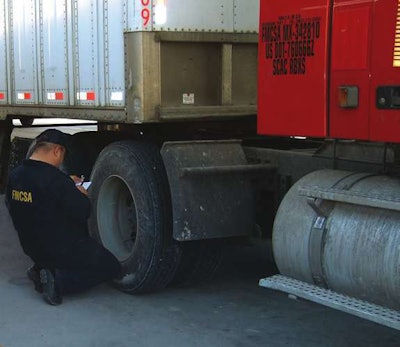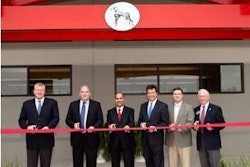
A report by the Government Accountability Office recommends that the Federal Motor Carrier Safety Administration expand new applicant reviews to better identify “chameleon” carriers that avoid identification by registering under a different identity. FMCSA generally agreed with the recommendations, which include expanding its current screening program using a data-driven approach and providing guidance to improve the new entrant program.
The report says FMCSA lacks sufficient resources to determine the total number of the falsely-identified carriers within the industry. Doing so would require it to investigate tens of thousands of new applicants that register annually, and then complete a legal process for those in breach.
Instead, it uses a screening program to identify chameleon carriers among new applicants for bus companies and moving companies only. These groups were selected because they fell under consumer protection and because they present relatively high safety risks, but they represented only 2 percent of new applicants in 2010.
Using agency data, GAO found the number of carriers with chameleon attributes increased from 759 in 2005 to 1,136 in 2010. Also, 18 percent of the applicants with these attributes were involved in severe crashes, compared with 6 percent of new applicants without these attributes.
The report also says researchers found that FMCSA’s investigative programs – the screening and new entrant safety assurance programs ¬¬– are not well designed to identify suspected chameleon carriers, since the screening program only checks bus and moving companies and the new entrant program is designed primarily to educate new entrants about regulations.
According to the report, the new entrant audit does include questions to elicit information on connections between new and previous carriers, but auditors lack guidance on how to interpret the responses to distinguish fraudulent carriers from legitimate carriers.
The GAO’s report acknowledged the agency has constraints in pursuing enforcement against suspected chameleon carriers, citing a 2010 decision by FMCSA that was unclear whether state or federal standards should be used as evidence a carrier is entering fraudulently. It resulted in investigators gathering evidence to meet both standards, leading to differing enforcement actions and increasing time required to pursue chameleon cases.
FMCSA is pursuing ways to achieve a single standard, including providing input to Congress on a legislative proposal, monitoring chameleon carrier cases that could clarify the 2010 decision and pursuing rulemaking. Other enforcement constraints FMCSA faces include a resource-intensive legal process, inability to preclude carriers from obtaining multiple registration numbers and low maximum fines, the report says.












